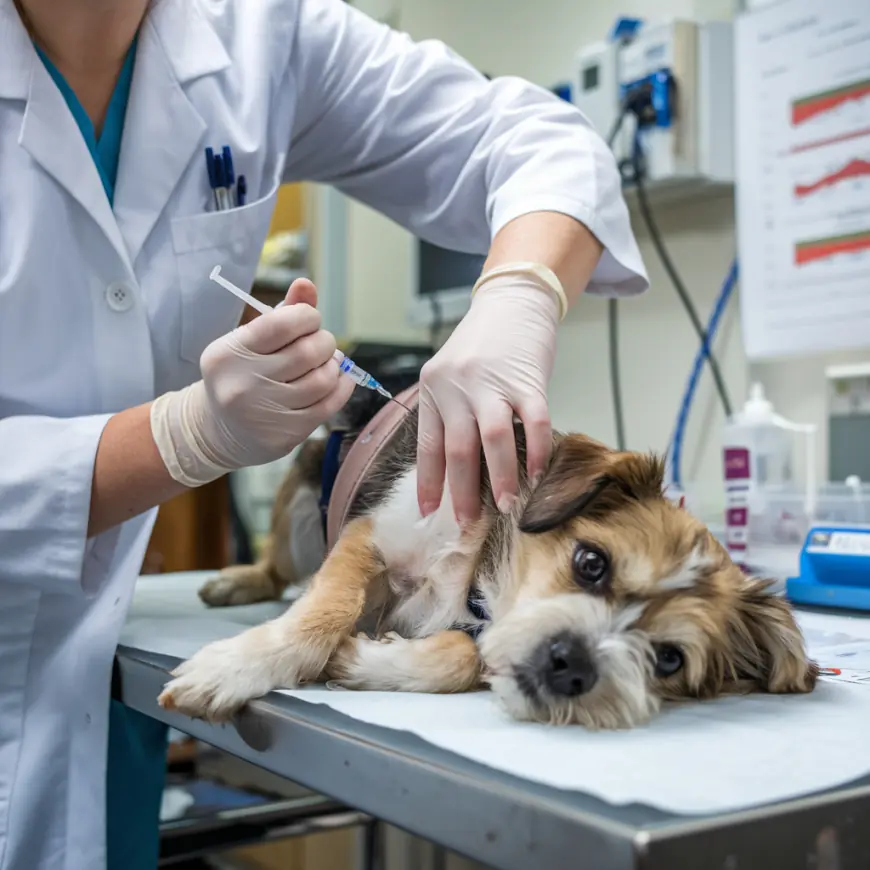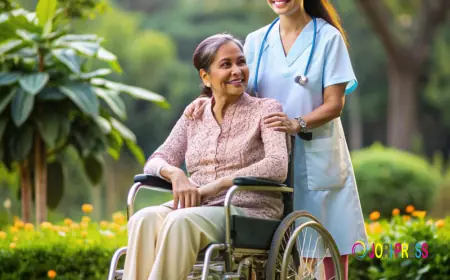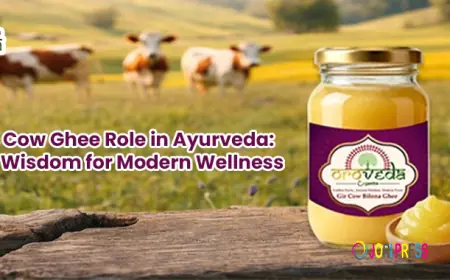When Do Puppies Need Vaccinations? C5 Shots and Puppy Vaccine Schedule
Puppy vaccinations protect against serious diseases, starting at 6–8 weeks with boosters up to 16 weeks. The C5 vaccine offers the broadest protection, with yearly boosters needed.

Bringing home a new puppy is an exciting and joyful experience. From their playful energy to their loyal companionship, puppies quickly become part of the family. But just like babies, puppies need protection from harmful diseases that their immune systems can’t yet fight on their own. That’s where vaccinations come in. Vaccines play a crucial role in keeping puppies healthy and ensuring they grow into strong adult dogs. If you’ve heard about the C5 vaccination or wondered when your puppy needs its first shots, this guide will explain everything you need to know in clear and simple terms.
Why Are Puppy Vaccinations Important?
Vaccinations are one of the most effective ways to prevent life-threatening illnesses in dogs. Puppies are particularly vulnerable because their immune systems are still developing, and while they do get some antibodies from their mother’s milk, this protection fades within weeks. Without vaccines, puppies are at risk of catching diseases such as parvovirus, distemper, and kennel cough—all of which can be painful, costly to treat, or even fatal.
A good vaccination schedule doesn’t just protect your puppy—it also helps protect the wider dog community. Diseases like parvovirus spread easily through shared spaces such as dog parks, boarding kennels, and even the ground outside. When more dogs are vaccinated, the chances of outbreaks are reduced, keeping pets everywhere safer.
What Is the C5 Vaccination?
When researching puppy vaccines, you’ll often come across terms like “C3” or “C5.” These are shorthand ways of describing which diseases the vaccine covers.
-
C3 Vaccination: Protects against the three core diseases—canine distemper, hepatitis, and parvovirus.
-
C4 Vaccination: Covers the C3 diseases plus parainfluenza virus.
-
C5 Vaccination: Provides protection against all the above plus Bordetella bronchiseptica, one of the main causes of kennel cough.
The C5 vaccination is the most comprehensive and is widely recommended for puppies, especially those that will spend time around other dogs in parks, training classes, or boarding kennels. Because kennel cough is highly contagious, many facilities require proof of a current C5 vaccination before allowing entry.
When Should Puppies Get Their First Vaccination?
The timing of your puppy’s first vaccination is very important. Puppies usually begin their vaccine journey when they are around 6 to 8 weeks old. This is because the maternal antibodies from their mother’s milk are starting to wear off, and vaccines can begin to build their own immune defense.
The first vaccination is just the start—it needs to be followed by a series of boosters at specific intervals. These booster shots ensure that your puppy’s immune system has a strong and lasting response. Skipping or delaying these can leave gaps in your puppy’s protection, so it’s best to follow your vet’s recommended schedule closely.
The Recommended Puppy Vaccination Schedule
Here’s a commonly recommended timeline for puppy vaccinations:
-
6 to 8 weeks old: First vaccination (often a C3 shot).
-
10 to 12 weeks old: Second vaccination, usually a C5, which includes kennel cough protection.
-
14 to 16 weeks old: Final puppy vaccination, typically another C5 booster.
By the time your puppy is 16 weeks old, they should have completed their core vaccinations. However, your vet may adjust the schedule slightly based on your puppy’s breed, health, and lifestyle.
What About Annual Boosters?
Many people think that once the puppy series is complete, their dog is protected for life. Unfortunately, this isn’t true. The immunity from vaccines can fade over time, so most dogs require booster shots to stay protected.
For core vaccines (distemper, hepatitis, parvovirus), immunity may last for up to three years, but kennel cough protection usually only lasts around 12 months. This is why most vets recommend a yearly check-up, during which they’ll review your dog’s vaccine needs and administer boosters if required.
What Happens If Puppies Miss a Vaccination?
Sometimes life gets in the way and a puppy might miss their scheduled vaccination. If this happens, don’t panic, but don’t ignore it either. Missing a shot can leave your puppy unprotected. The best thing to do is contact your vet right away—they will usually restart the vaccination course or adjust the timing to ensure your puppy still builds full immunity.
The most important thing to remember is that until your puppy has had their full series of shots, they should not be exposed to high-risk environments like dog parks, public footpaths, or kennels where unvaccinated dogs might be present.
Common Side Effects of Puppy Vaccinations
Just like humans, puppies can sometimes experience mild side effects after a vaccination. These are usually nothing to worry about and include:
-
Slight swelling or soreness at the injection site
-
Tiredness or sleepiness for a day
-
Mild fever
-
Reduced appetite
These symptoms usually resolve within 24–48 hours. If your puppy develops severe symptoms, such as persistent vomiting, difficulty breathing, or collapse, seek immediate veterinary attention. These reactions are very rare, but it’s always best to be safe.
Cost of Puppy Vaccinations
The cost of puppy vaccinations varies depending on where you live, the clinic you visit, and whether you choose a C3 or C5 vaccine. In most cases, you can expect to pay anywhere from $80 to $150 per visit. While this may seem like a significant expense, it’s far less than the cost of treating a serious illness like parvovirus, which can run into thousands of dollars and may not always be successful.
Some veterinary clinics also offer vaccination packages that cover all the required puppy shots for a set price, which can be more affordable for new pet owners.
Can Puppies Socialise Before Their Vaccinations Are Complete?
One of the biggest challenges new puppy owners face is balancing the need for socialisation with the risk of exposure to disease. Puppies need early socialisation to grow into well-adjusted adult dogs, but they also need protection from illnesses they’re vulnerable to before their vaccinations are complete.
A safe compromise is to let your puppy socialise with fully vaccinated dogs in controlled environments, such as at home or in a trusted friend’s backyard. Puppy preschool classes run by vet clinics are also a safe way to begin socialisation because all puppies attending must be up-to-date with vaccinations. Avoid dog parks and public places until your vet gives the all-clear, usually after the final vaccination at 16 weeks.
Final Thoughts
Vaccinations are one of the most important responsibilities of being a pet owner. A well-planned vaccination schedule protects your puppy not only during their vulnerable early months but also throughout their life. The C5 vaccination, in particular, offers broad protection against core diseases and kennel cough, making it the gold standard for most dogs.
By starting vaccinations at 6–8 weeks, following through with the boosters, and keeping up with annual check-ups, you can give your puppy the best possible chance at a healthy, happy, and long life. Always consult your veterinarian for personalised advice, and remember—prevention is far better, and much cheaper, than cure.
What's Your Reaction?
 Like
0
Like
0
 Dislike
0
Dislike
0
 Love
0
Love
0
 Funny
0
Funny
0
 Angry
0
Angry
0
 Sad
0
Sad
0
 Wow
0
Wow
0


















































